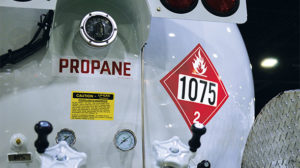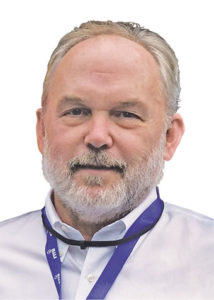Success stories of past propane state executives

Outgoing state executives, similar to their incoming colleagues, stress the importance of communication to the success of the industry. Photo by Joe McCarthy
Amid the challenges state associations face, the past executives of the New York Propane Gas Association (NYPGA) and the Propane Gas Association of New England (PGANE) saw solutions.
Shane Sweet, executive director of NYPGA from 2014 to 2019, says he saw about a 40 percent increase in membership during his tenure, while Joe Rose, president and CEO of PGANE from 2007-17, says PGANE’s membership nearly doubled during his time in that role.
Both leaders cite their efforts to invigorate communication as instrumental to improving the health of their organizations.
“That was just your waking state: Get out of bed every morning, come across somebody you don’t know, somebody who reached out to you, somebody you picked up at a meeting somewhere … add them to the list, give them the option obviously to opt out, but start sending them your material on day one,” says Sweet. “And I think by and large that was probably the catalyst that led to the increase in support for New York those five years – just communications.”
Expanding their reach

Sweet
To effectively expand the reach and frequency of communications, Sweet and Rose adopted digital newsletters.
“That was really radical in 2007 … but we ended up with six people that didn’t have email, and we helped them set up Gmail accounts,” explains Rose. “What that allowed us to do is weekly send out a little one-page or two-page newsletter.”
In 2014, Sweet converted the NYPGA’s print newsletter, published a few times a year, to a weekly e-blast.
The past executives viewed each outreach not just as informative but as a value proposition for membership.
“State association executives have to ensure that their association is so valuable that you couldn’t possibly not belong,” says Rose.
To deliver the valuable programs members wanted and land that strong message, revenue was top of mind for Rose and Sweet.
They sought opportunities to serve members and generate income through non-dues revenue programs, ranging from seminars and training to sponsorships and affinity programs.
Sweet says NYPGA sponsorships were up 200 percent during his time as executive director. He cites frequent communication about the benefits of sponsorship – in newsletters, at conventions and trade shows, and at any occasion where there was an opportunity to spread the message – as the driver of this growth.
“Again, it was all about communication and all about telling your story and telling it often,” says Sweet.
In 2010, Rose founded the biannual Northeast Propane Show, which still runs today.
“We made enough money on that show to support a full-time employee for two years,” explains Rose.
More staff meant more manpower to complete valuable projects. When Rose started at PGANE, he was the first full-time staff member and worked with two half-time employees. When he left, the organization had four full-time employees, he explains.
Rose admits that his success is based in part on favorable market conditions in New England that other regions may not enjoy.
What’s best for members
Declining membership in Indiana, for example, including decisions by two major multistate participants, made it uneconomical for the Indiana Propane Gas Association (IPGA) to continue under its prior owner, the Indiana Petroleum Marketers and Convenience Store Association, says Scot Imus, former IPGA director. He now serves as executive director of the Indiana Food & Fuel Association, the successor of the Indiana Petroleum Marketers and Convenience Store Association.
IPGA’s new owner manages other state propane associations in the region. Imus explains the economies of scale in this new arrangement have led to better services for IPGA members.
When the pool of potential members just isn’t there, Rose has a hopeful message: “More important than the number of members is increasing the membership participation.”
When the association communicates relevant and fresh information, members get interested, Rose says. When it structures and guides participation, members get enthusiastic.
“We built staff because my position always was it’s the staff’s job to do the work, not the membership, not the volunteers,” says Rose. “I used to tell the committees your responsibility is to be like my board of directors for this particular subject like education or marketing. You come up with some ideas, you evaluate how we’re doing and you provide strategic direction, and the staff will do the work.”
Rose says he initially had trouble filling seats on the PGANE board, but when he left, the association was holding contested elections for those seats.
















